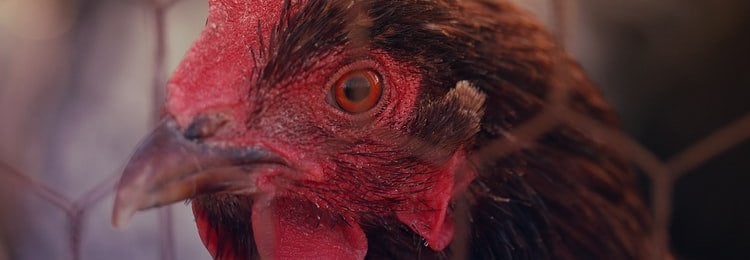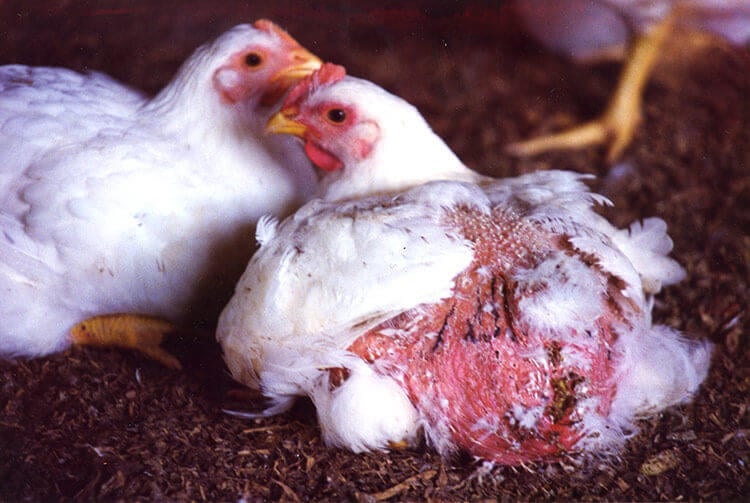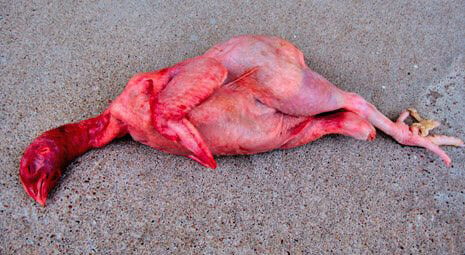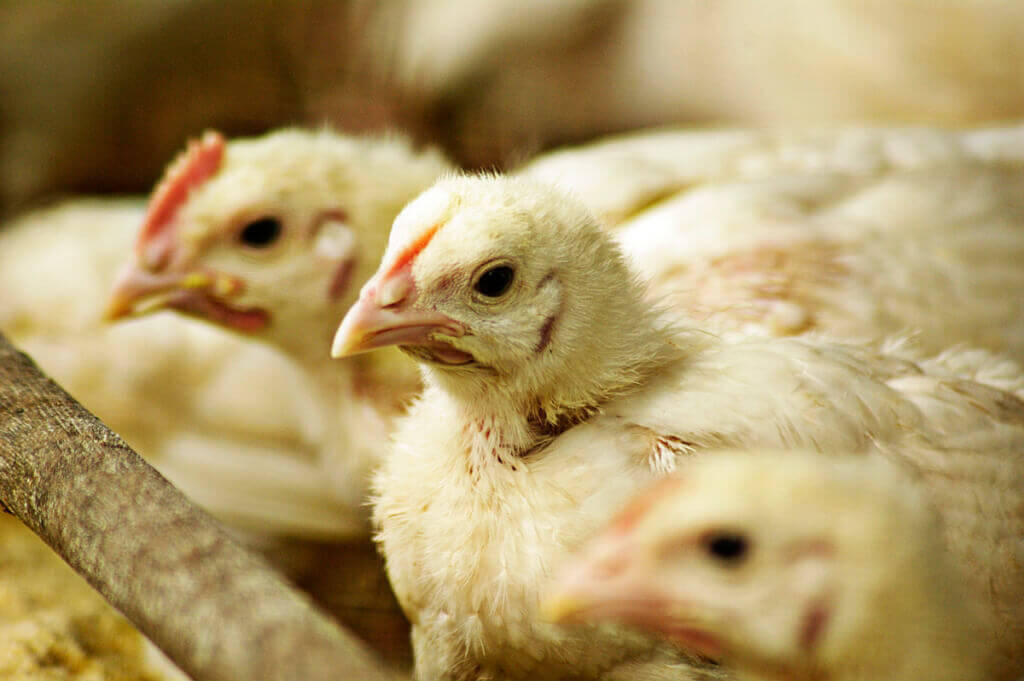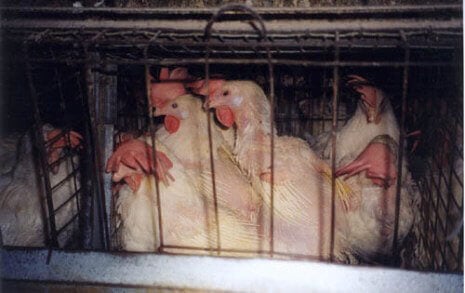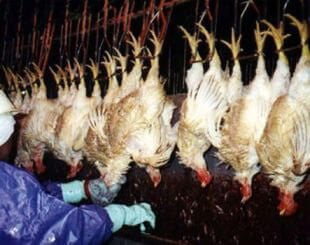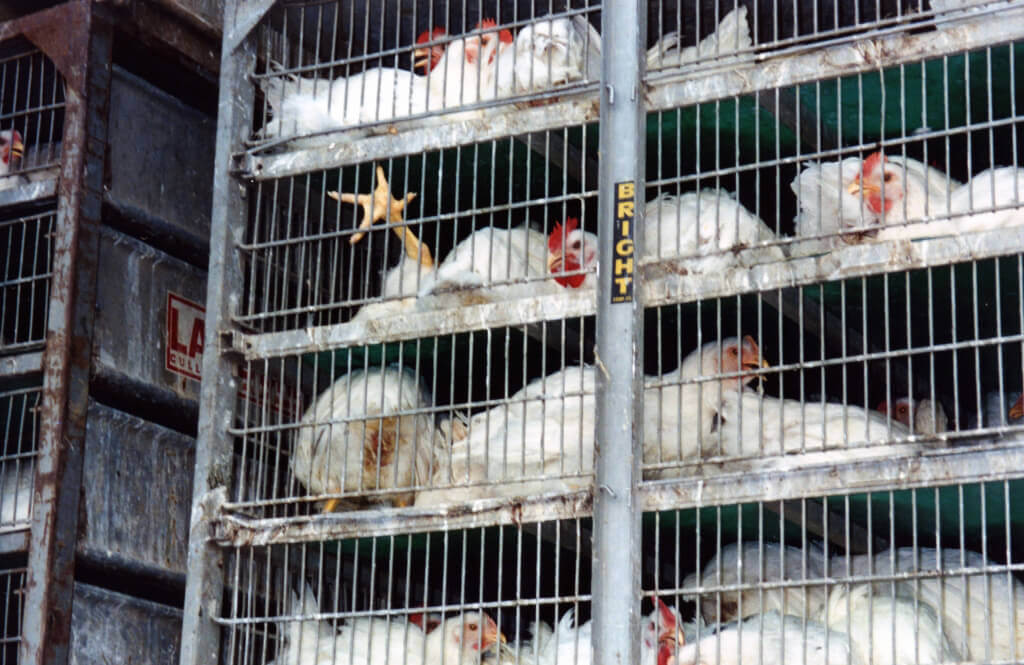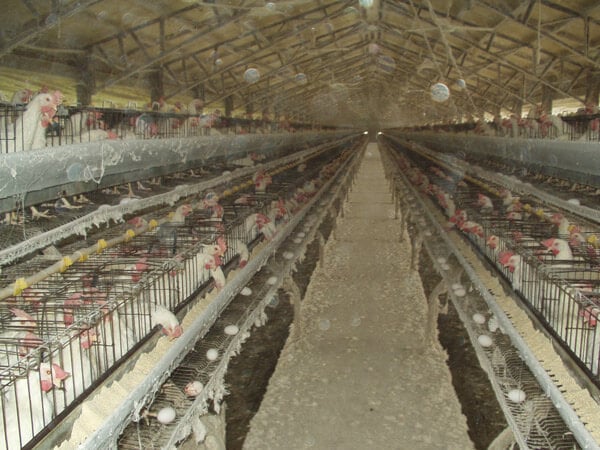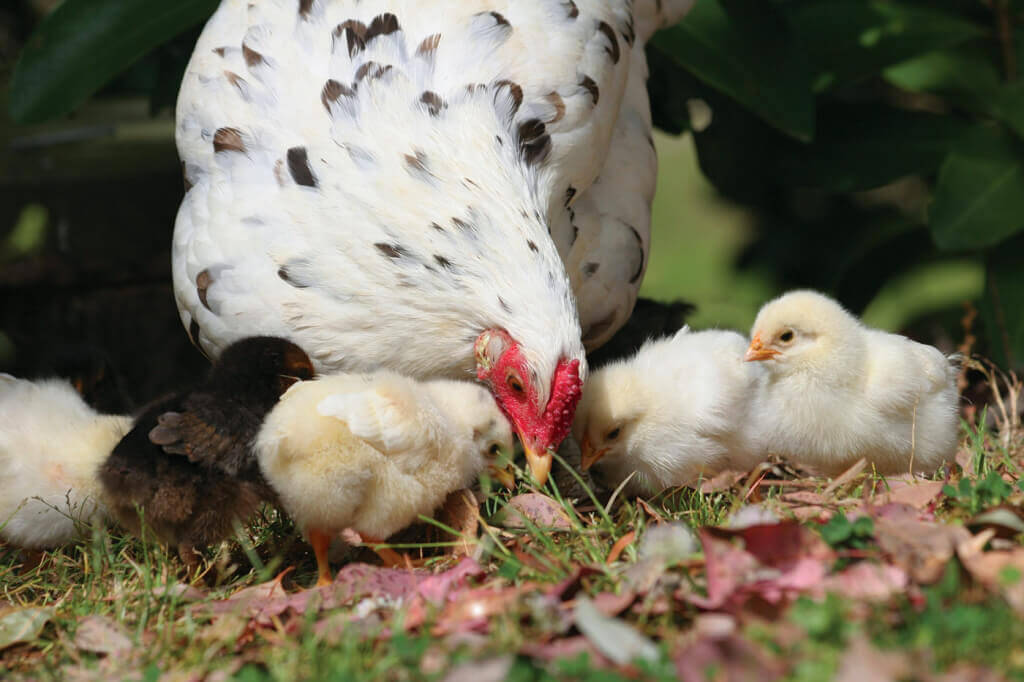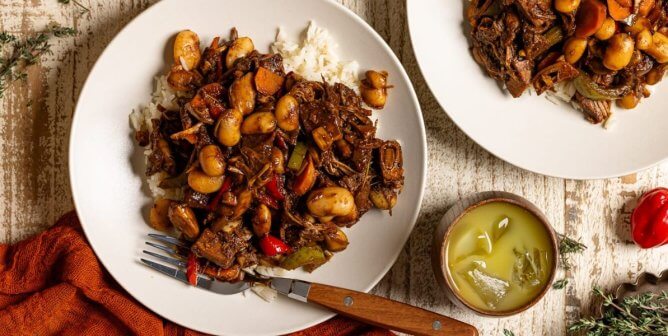Quite simply, chickens are the most abused animals on the planet. In the United States, approximately 9 billion chickens are killed for their flesh each year, and 313 million hens are used for their eggs. The vast majority of these animals spend their lives in total confinement—from the moment they hatch until the day they are killed.
Here’s a shocking video of your chicken dinner, in reverse:
These are our top 10 reasons to not eat chickens:
1. ‘Bird Brain’ Is a Compliment
An article in Scientific American titled “The Startling Intelligence of the Common Chicken” describes chickens as “cunning.” It goes on to say that they possess “communication skills on par with those of some primates and … [use] sophisticated signals to convey [their] intentions. When making decisions, [they take] into account … prior experience and knowledge surrounding the situation. [They] can solve complex problems and [empathize] with individuals that are in danger.” So who are you calling a “bird brain”?
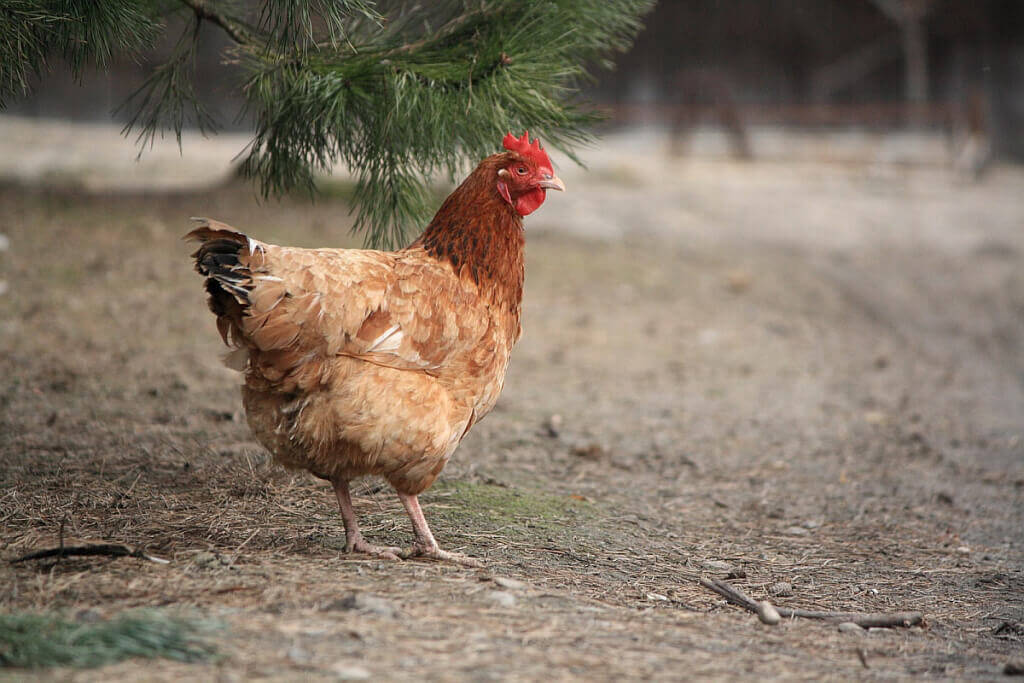
2. There is a High Risk of Human Exposure to Antibiotic-resistant Bacteria Through the Food Supply
Chickens raised for their flesh are often packed by the thousands into massive sheds and fed large amounts of antibiotics and drugs to keep them alive in conditions that would otherwise kill them.
Raising 9 billion chickens for meat on factory farms each year produces enormous amounts of excrement. Oregon State University agriculture professor Peter Cheeke says that factory farming amounts to “a frontal assault on the environment,” which leads to widespread fecal land and water pollution. Because chickens are often fed massive amounts of antibiotics and additives, these chemicals are also found in high concentrations in their feces, which means that fecal pollution from chicken farms is especially disastrous for the environment. In Maryland and West Virginia, for example, scientists discovered that male fish are growing ovaries, and they suspect that this freakish deformity is the result of factory-farm runoff from drug-laden chicken feces.

